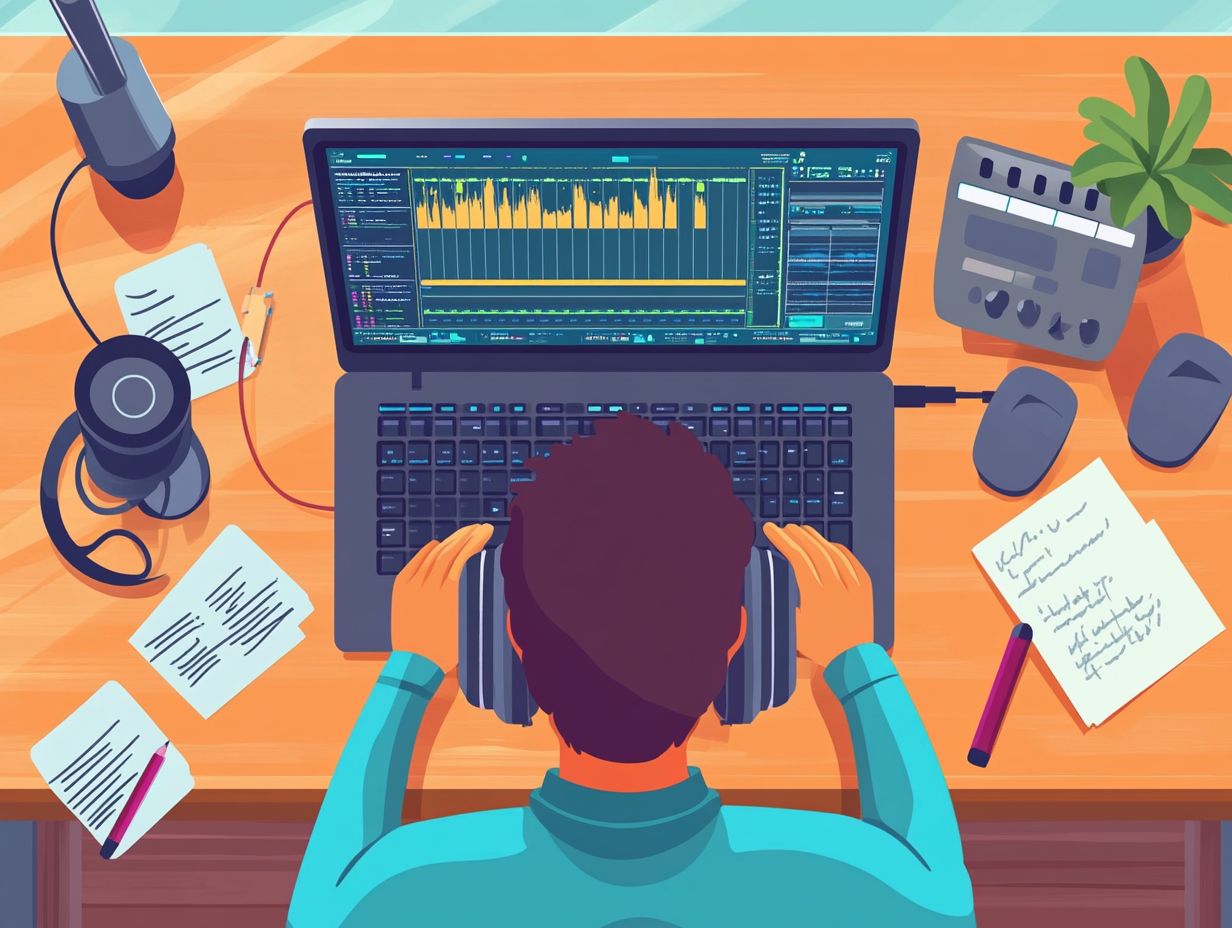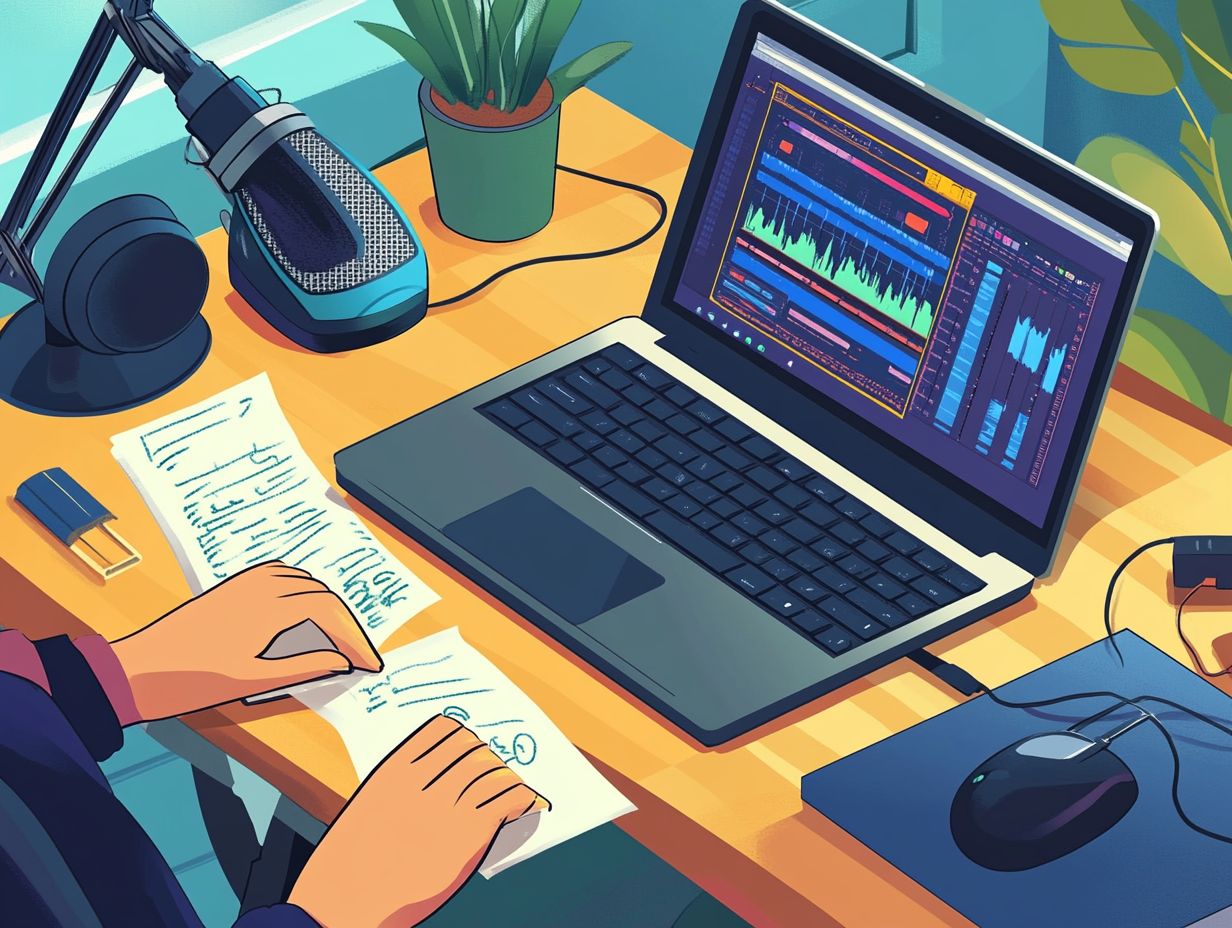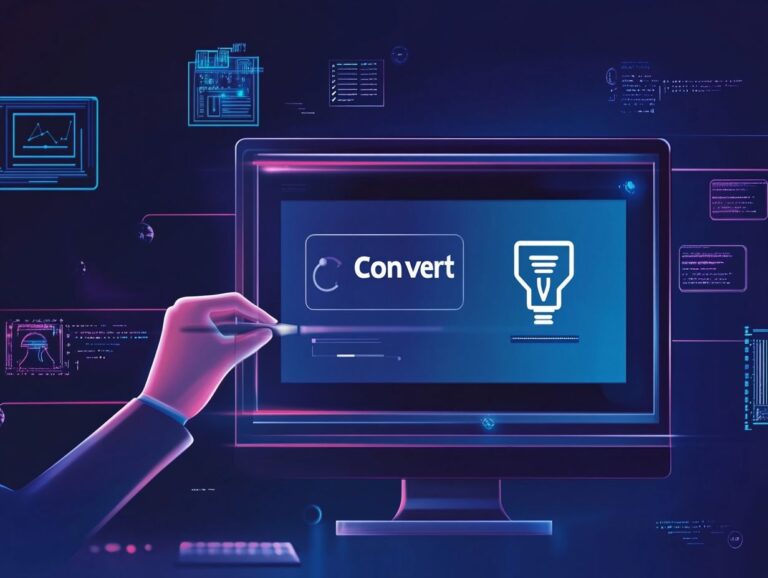How to Clone a Voice Using AI for Free?
Voice cloning is revolutionizing the way we communicate with machines by enabling the reproduction of human speech in a remarkably convincing manner. This article delves into the technical aspects of voice cloning, including the use of neural networks and text-to-speech technology.
It outlines the numerous advantages of voice cloning, such as enhanced accessibility for individuals with disabilities and the ability to personalize voice assistants. However, it also addresses potential downsides, including privacy concerns and the risk of fraud.
Additionally, the article explains how to clone your own voice for free and discusses the limitations of current voice cloning technology. Finally, it explores the future of sound and its implications.
Contents
Key Takeaways:
What Is Voice Cloning?
Voice cloning is an innovative AI technology that allows users to generate high-quality audio samples that mimic a person’s unique voice profile. This technology relies on an advanced speech synthesis process, which uses a limited amount of audio data from a voice actor or any individual to create realistic voice outputs.
The nuances and tones of the original voice are preserved during this process, enabling the use of voice cloning in various applications, including content creation, e-learning projects, and personalized voice applications for multimedia content.
How Does AI Voice Cloning Work?
AI voice cloning operates by utilizing advanced machine learning models and deep learning algorithms that analyze extensive amounts of speech data to generate synthetic voices. The process typically involves training the AI model on audio files that feature the target voice, enabling it to learn the unique characteristics, intonation, and speech style of that voice.
Once training is complete, the AI can produce real-time voice outputs that closely resemble the original speaker. AI voice cloning has proven to be invaluable for e-learning projects and content creation.
What Are Neural Networks?
Neural networks are a type of AI technology that simulates the way the human brain functions, consisting of interconnected nodes or “neurons” that process input data through layers of algorithms.
In the context of voice cloning, neural networks play a crucial role in analyzing and synthesizing audio samples, enabling machines to learn from large datasets and produce high-quality voice outputs. By utilizing a multi-layered architecture, these networks effectively capture intricate patterns within the data. The initial layer receives raw audio input, which is then refined through several processing layers that extract relevant features. The final output layer generates a synthesized voice that closely resembles the original.
This deep learning approach not only enhances the accuracy of voice replication but also improves the ability to mimic emotions and accents, making applications in virtual assistants and entertainment remarkably realistic.
In this landscape, neural networks have transformed our perception of machine-generated speech, offering unprecedented levels of personalization and expressiveness.
What Is Text-to-Speech (TTS) Technology?
Text-to-Speech (TTS) is a form of speech synthesis that refers to any technology capable of converting written text into spoken voice output using a voice generator. TTS systems are utilized in a wide range of applications, including e-learning projects, virtual assistants, and content generation for audio formats. Advanced algorithms enable TTS systems to produce audio clips that sound natural and expressive.
The principles behind TTS technology involve two main components. The first component, linguistic analysis, breaks down the text into phonemes, intonations, and rhythm patterns, which is essential for generating highly intelligible speech. This component creates a speech signal that closely resembles how humans would pronounce the same text, producing the audio output of the TTS application.
TTS systems are employed in various use cases, benefiting users with accessibility needs, such as those with visual impairments or reading difficulties, while also enhancing user engagement across digital platforms. Compared to traditional reading methods, TTS technology offers significant advantages, including multitasking, content customization, and improved reading comprehension.
Recent advancements, such as voice cloning, allow for a more personalized experience, enabling users to select different voice styles that better align with their preferences. This evolution brings TTS technology closer to human-like interaction while maintaining the efficiencies that technology provides.
What Are the Benefits of Voice Cloning?
The benefits of voice cloning include personalized voice assistants, enhanced e-learning projects, and professional voiceovers. This technology improves user experience by generating high-quality audio outputs filled with emotion.
As a result, users can maintain a consistent brand voice across all multimedia content, making interactions more engaging and relatable for audiences. Additionally, voice cloning technology facilitates content creation by enabling faster content generation through quick script changes and seamless integration into audiovisual mediums.
1. Personalized Voice Assistants
Personalized voice assistants utilize voice cloning technology to create unique voice profiles that correspond to specific users, enhancing interaction.
By employing user-generated voices, AI voice assistants can respond in ways that are specifically tailored to individual preferences, ultimately leading to a more engaging experience.
2. Accessibility for People with Speech Disabilities
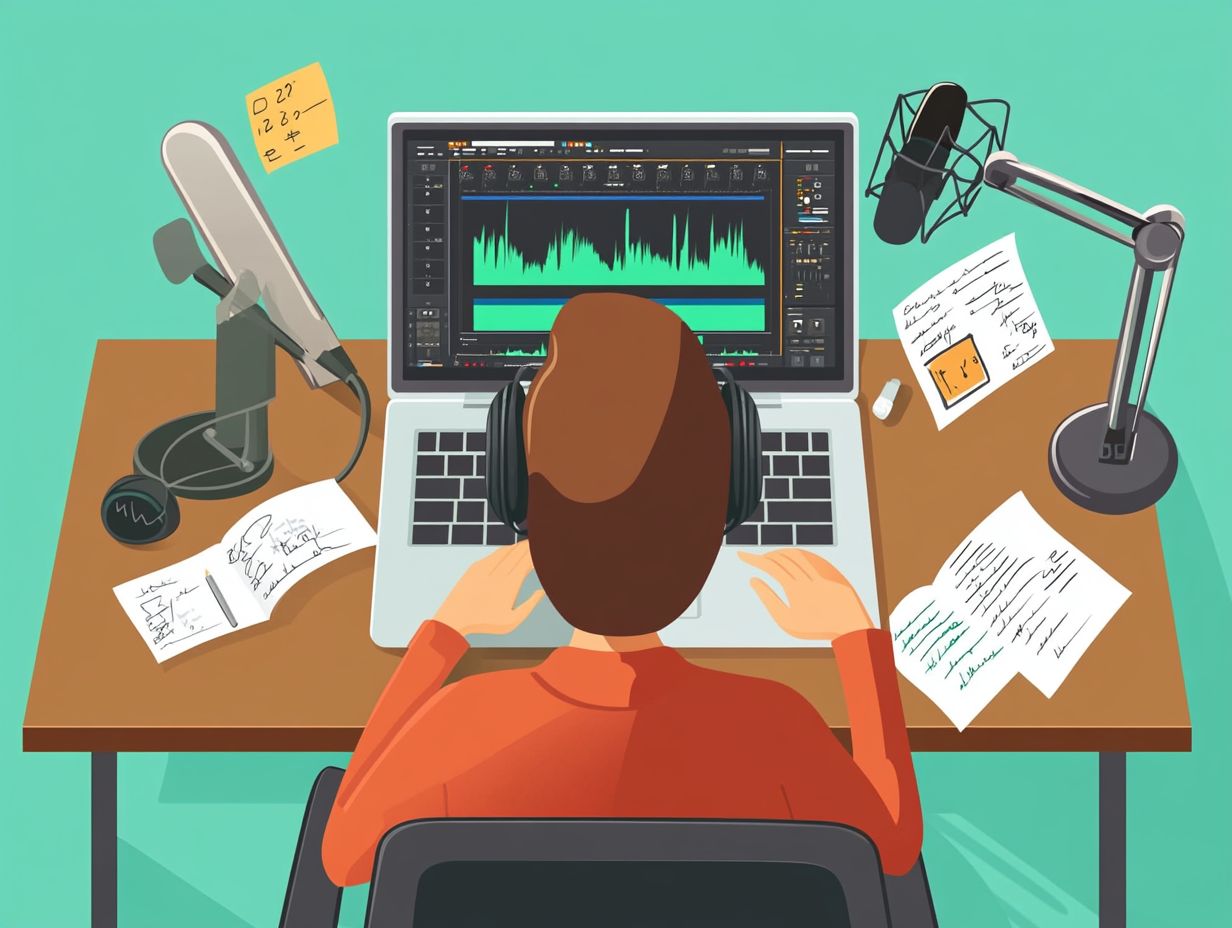
Voice cloning technology has significantly improved accessibility for individuals with speech disabilities by enabling them to communicate through synthesized voices that closely resemble their own emotional speech patterns. This technology give the power tos users to generate voices that align more closely with their identity, thereby enhancing communication in various settings, including social interactions, workplaces, and e-learning projects.
For those with speech disabilities, the ability to select a voice that shares similar characteristics can address the psychological effects of losing their natural voice due to illness or injury. This option can boost self-esteem and self-confidence, helping individuals regain a sense of identity.
Another advantage of voice cloning technology is that as synthesized voices become more advanced, they are better able to capture subtle emotional intonations. This feature is essential because individuals with speech disabilities seek not only a voice that sounds like theirs but also one that sounds natural and authentic.
It is vital for individuals with speech disabilities to express their opinions, thoughts, and emotions to participate in conversations like everyone else. Voice cloning technology plays an important role in ensuring they can do so effectively.
3. Voiceover for Videos and Audiobooks
Voice cloning technology is transforming the production of voiceovers for videos and audiobooks by delivering high-quality, professional voice outputs that can be customized for various contexts. This advancement in content creation enables creators to produce engaging instructional videos and audiobooks without the need for extensive recording sessions, ultimately saving time and resources.
By utilizing this innovative tool, content creators can maintain consistency in their projects while evoking specific emotions and tones that resonate with their audience. The efficiency of voice cloning reduces the back-and-forth typically associated with voiceover work, allowing for quicker turnarounds and increased productivity.
Additionally, the technology offers unparalleled customizability, enabling users to adjust pitches and intonations to suit their individual projects. Whether crafting a dramatic audiobook or a lighthearted tutorial, this flexibility allows the final product to be tailored precisely to achieve the desired impact, thereby enhancing overall audience engagement.
What Are the Risks of Voice Cloning?
The risks associated with voice cloning, such as the misuse of personal information, loss of privacy, and potential for fraud, must be carefully considered.
Among the most dangerous outcomes of misusing this powerful AI technology are identity theft and the spread of misinformation, which contribute to the erosion of privacy and personal autonomy.
1. Misuse of Personal Information
The misuse of personal information related to voice cloning poses serious threats, such as identity theft, by enabling the creation of synthetic voices that mimic the victim. This situation raises important questions about how personal audio data will be protected and the ethical implications of collecting and using voice data across various applications.
For instance, there have been reports of scammers utilizing voice cloning to impersonate executives in the financial sector, tricking employees into transferring funds. Unregulated technologies and risks like these jeopardize financial security and highlight the inadequacy of existing laws to address such societal threats.
Laws often struggle to keep pace with technological advancements, leaving individuals vulnerable. The ethical concerns are substantial, as issues of consent, authenticity, and the potential misuse of personal information underscore the urgent need for regulations to protect individuals from the exploitation of their vocal fingerprints.
2. Loss of Privacy
Voice cloning technology presents a significant risk to privacy, as it enables unauthorized recordings and replication of a person’s voice. This situation raises crucial data security concerns and underscores the need for regulations that protect individuals’ rights to control how their voice profiles are used and shared.
The implications of unauthorized voice cloning are far-reaching, potentially impacting a person’s personal safety, identity, and financial security. As reliance on voice technology grows in various interactions such as customer support, entertainment, and companionship the potential for misuse increases. Individuals may face the risk of their vocal likeness being exploited in harmful ways, such as in fraudulent communications or deceitful scenarios.
This reality highlights the necessity for consent mechanisms and robust data protection laws. Society must actively promote transparency and ensure that individuals have the ability to safeguard their voice against potential misuse in these contexts.
3. Potential for Fraud and Scams
The potential for fraudulent activities and scams arising from voice cloning technology is a growing concern, as deepfake audio can be used to deceive both individuals and organizations. By mimicking trusted voices, criminals can defraud unsuspecting victims, highlighting the need for improved identity verification in our increasingly digital world.
For instance, a fraudster could impersonate a CEO’s voice to authorize fraudulent financial transactions, potentially leading to significant financial losses for companies. There have already been incidents where individuals received calls from someone who sounded like a relative in distress and were coerced into sending money.
To combat these threats, solutions such as biometric voice authentication which measures unique voice characteristics have become essential tools in the verification toolkit. Organizations must also implement multi-factor authentication and raise awareness about these threats, enabling employees and consumers to recognize potential scams and verify identities before taking action.
How Can You Clone Your Voice Using AI for Free?
In recent years, AI voice cloning has become increasingly accessible, with numerous free voice cloning software programs, online services, and mobile apps available for users. Individuals can create personalized voice profiles and take advantage of voice cloning technology without any cost, which has attracted a wider audience to this innovative field.
1. Using Open-Source Voice Cloning Software
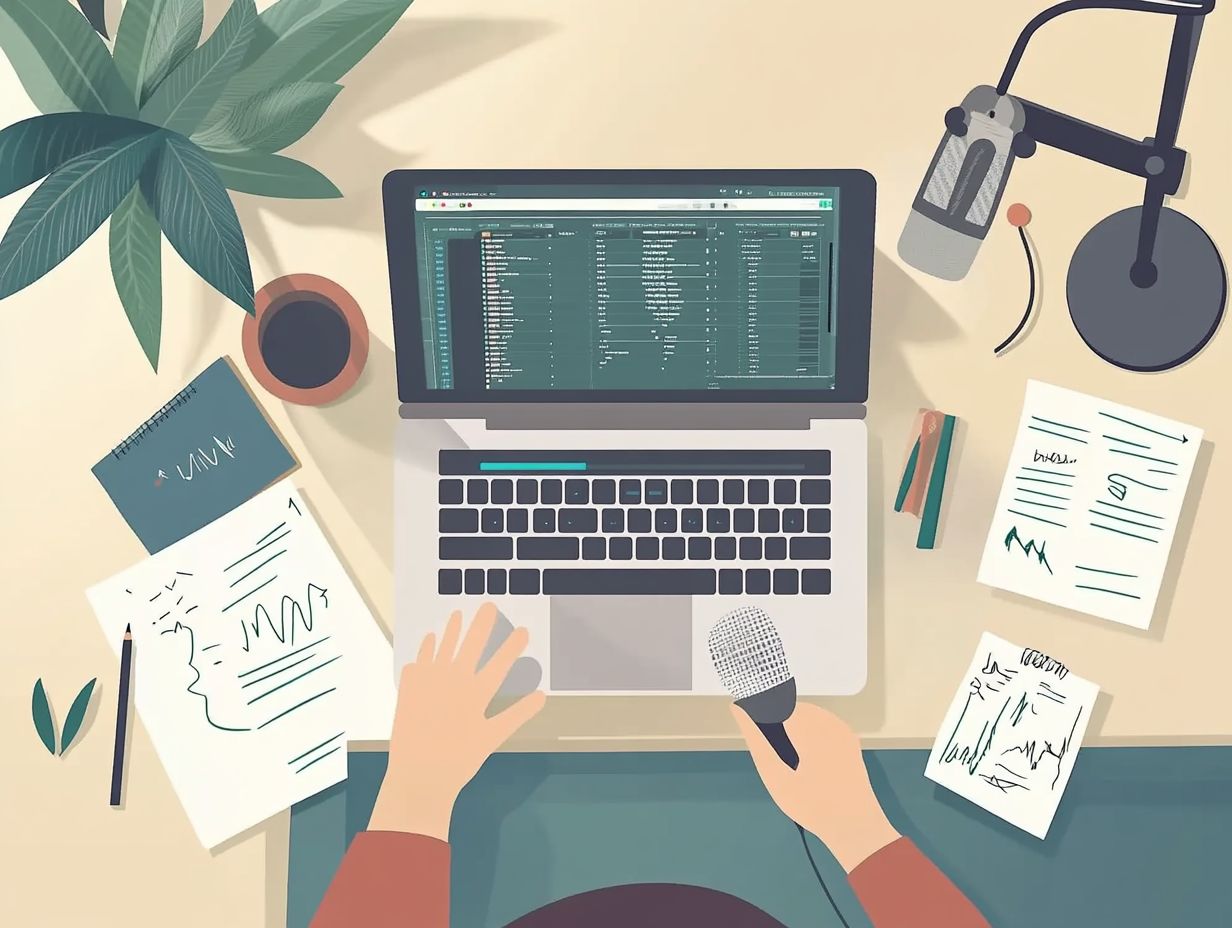
Open-source voice cloning software allows users to clone their voices using AI technology at no cost, providing a high level of customization and flexibility. By utilizing community-driven platforms, users can experiment with various parameters to create personalized voice profiles tailored to their specific needs.
Notable options include platforms like Mozilla’s TTS and Descript’s Overdub, which demonstrate powerful capabilities in voice synthesis. These systems leverage advanced deep learning algorithms to generate highly realistic audio outputs.
Key features often include adjustable pitch and tone, making it easy to craft a voice that closely resembles the original or even to create entirely unique versions. As more developers contribute to open-source projects, ongoing improvements and new features are frequently added, enhancing usability and expanding the creative potential for various applications, from voiceovers in multimedia productions to personalized virtual assistants.
2. Using Online Voice Cloning Services
Online voice cloning services offer user-friendly platforms that allow individuals to clone their voices with minimal technical expertise. These services typically feature intuitive interfaces that guide users through the process of creating their unique voice profiles quickly and efficiently.
With just a few simple steps, anyone can achieve professional-quality voice replication suitable for various applications, from personalized messaging to content creation. Users enjoy the flexibility of selecting different vocal characteristics, enabling them to create tailor-made expressions that perfectly align with their needs.
The increasing accessibility of these technologies allows users to create voice clones from virtually any internet-enabled device, making it convenient for busy professionals and creatives alike.
By incorporating advanced AI algorithms, these platforms ensure high accuracy and offer realistic emotional nuances, enhancing audio experiences to a whole new level.
3. Using Voice Cloning Apps
Voice cloning apps are convenient mobile technologies that enable users to clone their voices using AI directly from their smartphones. These apps offer a variety of features that allow users to create, edit, and manage their voice profiles on the go, enhancing the accessibility of voice cloning.
With intuitive interfaces, they provide a seamless user experience, enabling anyone interested to create lifelike voice replicas without requiring technical expertise. Users can utilize their cloned voices for various applications, such as personalized voiceovers for videos, enhanced communication tools for individuals with speech impairments, or simply for entertainment, like creating unique content for social media.
The portability of these tools allows people to work on their projects anytime and anywhere, significantly boosting creativity and productivity in their daily lives.
What Are the Limitations of AI Voice Cloning?
AI voice cloning technology has notable limitations that impede its effectiveness and authenticity. Challenges such as difficulty in conveying emotional speech, a lack of originality and genuineness, and an inability to accurately replicate specific accents and dialects pose significant barriers to the technology’s application, particularly in creative projects.
1. Difficulty in Capturing Emotions and Nuances
One of the primary challenges of AI voice cloning is the difficulty in capturing the full range of emotions and subtle nuances present in human speech. Despite some progress in this area, many synthetic voices still lack the expressive audio quality found in genuine human voices.
This deficiency can lead to misunderstandings in contexts where tone and emotional context are crucial, such as customer service interactions and entertainment. For instance, when consumers engage with a virtual assistant, insufficient emotional expression can diminish user satisfaction and render the experience feel robotic.
In the realm of entertainment, characters may become less nuanced, relatable, and engaging. Additionally, there are potential adverse effects, including unethical uses of cloned voices in manipulative ways. Therefore, the quest for an ideal AI voice cloning solution is not just a technical issue but also a complex challenge that encompasses human emotion, trust, and social dynamics.
2. Lack of Originality and Authenticity
The potential lack of originality and authenticity in AI voice cloning can hinder the creative process, as synthesized voices often sound generic or artificial. This presents a challenge for creators who seek to make their content unique while preserving their distinct voices in multimedia projects.
Artists may struggle to convey their personal style and emotional depth when utilizing technologies that mimic human speech patterns. Although the widespread availability of voice cloning tools has made audio production accessible to everyone, this accessibility can lead to an oversaturation of similar-sounding audio, making it harder for audiences to connect with the intended narrative.
Creators who aim to stand out risk becoming just another indistinguishable output, which can dilute their brand identity. Ultimately, projects that rely solely on AI-generated voices, without genuine originality, may lack the subtlety, character, and human touch that engage listeners.
3. Inability to Replicate Accents and Dialects
AI voice cloning currently faces challenges in accurately replicating a variety of accents and dialects, which limits its effective application in diverse cultural contexts. This issue underscores the need for future advancements in voice modification technologies to create more authentic and regionally appropriate synthetic voices.
As voice cloning technology becomes integrated into global applications like virtual assistants, customer service, and personalized education, the inability to accurately replicate regional speech patterns may result in misunderstandings and disenfranchisement. For instance, a voice assistant that fails to recognize or appropriately mimic the regional accent of its users may struggle to communicate effectively, leading to frustration.
Additionally, considerations of dialect nuances such as intonation, rhythm, and local idioms introduce layers of complexity that current models often overlook. Addressing these nuances is crucial to ensure that AI-powered solutions are inclusive and resonate authentically with audiences worldwide.
Frequently Asked Questions
How to Clone a Voice Using AI for Free?
To clone a voice using AI for free, you can use various online tools and software that offer this feature. Some popular options include Lyrebird, Voicemod, and Resemble AI.
What is voice cloning and how does it work with AI?
Voice cloning is the process of creating a synthetic or computer-generated version of a human voice. With the advancement of AI, voice cloning has become more realistic and accurate by using algorithms and deep learning techniques.
Can I use AI to clone anyone’s voice for free?
No, you cannot use AI to clone anyone’s voice for free. Most AI-powered voice cloning tools require the user to have substantial amounts of voice recordings of a specific person in order to generate a clone. This means that you cannot just clone anyone’s voice without their consent.
Are there any limitations to using AI for voice cloning?
While AI has made significant progress in voice cloning, there are still limitations to its capabilities. These limitations include the inability to clone emotions or accents accurately and the need for a large amount of voice data for a specific person.
How accurate is voice cloning using AI?
The accuracy of voice cloning using AI depends on various factors, such as the quality and quantity of voice data used and the complexity of the voice cloning software. Some AI tools can achieve a high level of accuracy, while others may produce less realistic results.
Can I use AI to clone my own voice for free?
Yes, you can use AI to clone your own voice for free as long as you have access to the necessary tools and software. This can be a fun way to experiment with your voice and create unique content, such as voiceovers or personalized voice messages.

